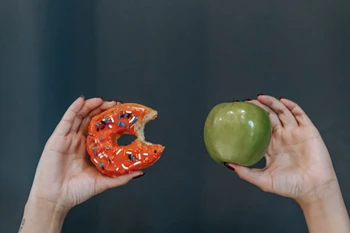 You're done answering all the questions on the ASWB exam. But you've got a sinking feeling about several of your responses. Should you change your answers? The answer to that: It depends.
You're done answering all the questions on the ASWB exam. But you've got a sinking feeling about several of your responses. Should you change your answers? The answer to that: It depends.
Research on answer changing in multiple-choice exams suggests that changing an answer can be beneficial…some of the time.
Studies have gone both ways on this question and haven’t been run (that we know of) specifically on social work licensing exam-takers. The bulk of studies have found that test-takers who change their answers are more likely to improve their scores than to decrease them, and that most answer changes are from wrong to right. However, this is not always the case, and it's of course possible to change a correct answer to an incorrect one.
To decide whether or not to change an answer on any multiple-choice exam, try these steps:. First, mark questions you’re unsure about and return to it later, after you’ve answered all 170 questions on the test. Once everything’s been answered, go back through marked items. Review question and the answer choices carefully, and eliminate any obviously incorrect choices. Next, consider whether you have any additional knowledge or insights that may lead you to a different answer than your initial choice. Finally, evaluate your confidence level in your original answer versus the potential new answer.
If you feel reasonably okay about your initial answer, it's often best to stick with it rather than second-guessing yourself. (The second-guessing itself can undermine your confident progress through the test.) If you’re iffy about your initial answer or have new information that suggests a different answer, changing it could very well be the better way to go.
Are you a answer-changing points gainer or points loser? There’s a way to figure that out before you take the ASWB exam: practice tests! Take full-length tests (we’ve got plenty of them here at SWTP) and make a note when you’ve changed your answer. As you review your test, look to see how things went for you–improvement or not? That’s information you can take into future practice tests…and finally into the real thing.
Happy studying and good luck on the exam!

 You're done answering all the questions on the ASWB exam. But you've got a sinking feeling about several of your responses. Should you change your answers? The answer to that: It depends.
You're done answering all the questions on the ASWB exam. But you've got a sinking feeling about several of your responses. Should you change your answers? The answer to that: It depends.